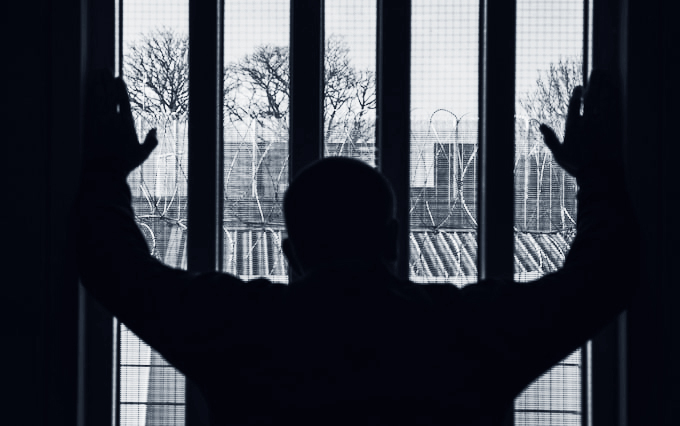Re: Lawfulness of Parole Recall by Probation Officers Without Judicial Oversight
I. INTRODUCTION
This legal opinion addresses the lawfulness of the current system in England and Wales under which individuals released on licence are recalled to prison by probation officers acting administratively, without prior judicial determination. On average, between 8,000 and 10,000 parole recalls occur annually. The majority of such recalls do not involve the commission of a new criminal offence but are due to alleged breaches of licence conditions, including failure to keep in contact, substance use, or risk-related behaviours.
This opinion contends that the current system of recall is inconsistent with fundamental constitutional principles and established international human rights standards. It recommends the establishment of a specialised judicial body—a Probation and Parole Tribunal—where judicial oversight of recalls is mandatory.
I. CURRENT FRAMEWORK FOR PAROLE RECALLS
Under the Offender Management Act 2007 and the Criminal Justice Act 2003, probation officers acting on behalf of the Secretary of State may initiate the recall of a released individual who is deemed to have breached their licence conditions or poses a risk to the public. The process requires no immediate judicial review. Once recalled, the individual may be held in custody indefinitely, pending review by the Parole Board, which may take weeks or months to determine re-release. .
III. VIOLATION OF CONSTITUTIONAL PRINCIPLES
1. Bill of Rights 1689
Article 9 of the Bill of Rights establishes that “excessive bail ought not to be required, nor excessive fines imposed, nor cruel and unusual punishments inflicted.” Importantly, the Bill of Rights enshrines the supremacy of Parliament and the protection of individual liberty from executive overreach. The administrative recall to custody by non-judicial officers constitutes a deprivation of liberty without due process.
2. Magna Carta (1215)
Clause 39 of Magna Carta declares:
“No free man shall be seized or imprisoned or stripped of his rights or possessions… except by the lawful judgment of his equals or by the law of the land.”
Administrative recall by probation officers circumvents this foundational protection. No lawful judgment is rendered before liberty is restricted. Instead, an executive agent unilaterally revokes liberty, contravening the requirement that deprivation of liberty must be by lawful judgment.
3. Habeas Corpus Act 1679
This Act guarantees the right to challenge unlawful detention. While recalled prisoners may apply to the Parole Board, the absence of immediate judicial review means detainees are held for extended periods before review. The essence of habeas corpus is that deprivation of liberty must be subject to prompt judicial scrutiny—not delayed administrative processing.
IV. INTERNATIONAL LEGAL FRAMEWORKS
1. European Convention on Human Rights (ECHR)
- Article 5(1) guarantees the right to liberty and security, allowing deprivation of liberty only in accordance with a procedure prescribed by law.
- Article 5(4) mandates that “everyone who is deprived of his liberty by arrest or detention shall be entitled to take proceedings by which the lawfulness of his detention shall be decided speedily by a court.”
The European Court of Human Rights has held in Weeks v United Kingdom (1987) and Thynne, Wilson and Gunnell v UK (1990) that continued detention of released prisoners must be subject to judicial scrutiny. The recall mechanism in its current form, whereby a non-judicial officer effects deprivation of liberty, without prompt access to a court, violates Article 5(4).
International Covenant on Civil and Political Rights (ICCPR
- Article 9(3) provides that “anyone arrested or detained… shall be brought promptly before a judge.”
- Article 9(4) echoes the right to habeas corpus, requiring access to a court to decide lawfulness.
The United Kingdom is a signatory to the ICCPR and is bound to uphold its provisions. The administrative recall system breaches these obligations by allowing prolonged detention without judicial review.
PRACTICAL IMPACT OF THE CURRENT SYSTEM
Of the estimated 8,000–10,000 recalls annually, approximately 70% are for technical breaches, not new criminal offences. Around 25% are recalled within 28 days of release, indicating a high volume of short-term returns to custody. These statistics highlight:
- The significant use of liberty-restricting powers by non-judicial officers
- The absence of proportionality in certain cases
- A lack of individualised, judicially assessed risk analysis
VI. COMPARATIVE JURISDICTIONAL ANALYSIS
In several jurisdictions, including Canada and some U.S. states, parole violations must be reviewed by a judicial or quasi-judicial authority within a short, defined period (often 48–72 hours). The UK system, by contrast, permits indefinite detention pending Parole Board review without judicial determination.
VII. RECOMMENDATION: CREATION OF A PROBATION AND PAROLE TRIBUNAL
To align the UK’s recall procedures with domestic constitutional safeguards and international legal standards, I recommend the establishment of a Probation and Parole Court or Tribunal, statutorily mandated to:
- Review all recall decisions within 48 hours
- Provide legal representation to the recalled individual
- Determine whether continued detention is justified on the basis of credible evidence and proportionate risk
- Issue binding rulings subject to appeal to the High Court
Probation officers may still initiate a recall for up to 48 hours but must
present the case to the Tribunal for continuation of custody.
This reform would:
- Protect individual liberty
- Uphold principles of natural justice
- Enhance public confidence in the justice system
- Ensure compliance with ECHR and ICCPR obligations
VIII. CONCLUSION
The present system of parole recall by probation officers, operating without judicial oversight, is inconsistent with the United Kingdom’s constitutional and international legal obligations. It permits arbitrary deprivation of liberty by executive agents, bypassing the judiciary in violation of the rule of law.
The establishment of a Probation and Parole Tribunal would provide the necessary judicial checks and balances to ensure that deprivation of liberty is always subject to lawful judgment. This proposal upholds the spirit of Magna Carta, the Habeas Corpus Act, and the Bill of Rights, and brings the UK into compliance with international human rights standards.
It therefore respectfully recommended to the Secretary of State for Justice that urgent legislative measures be introduced to reform the recall system and establish an independent judicial body for parole and probation oversight.
GIOVANNI DI STEFANO
25 MARCH 2025



